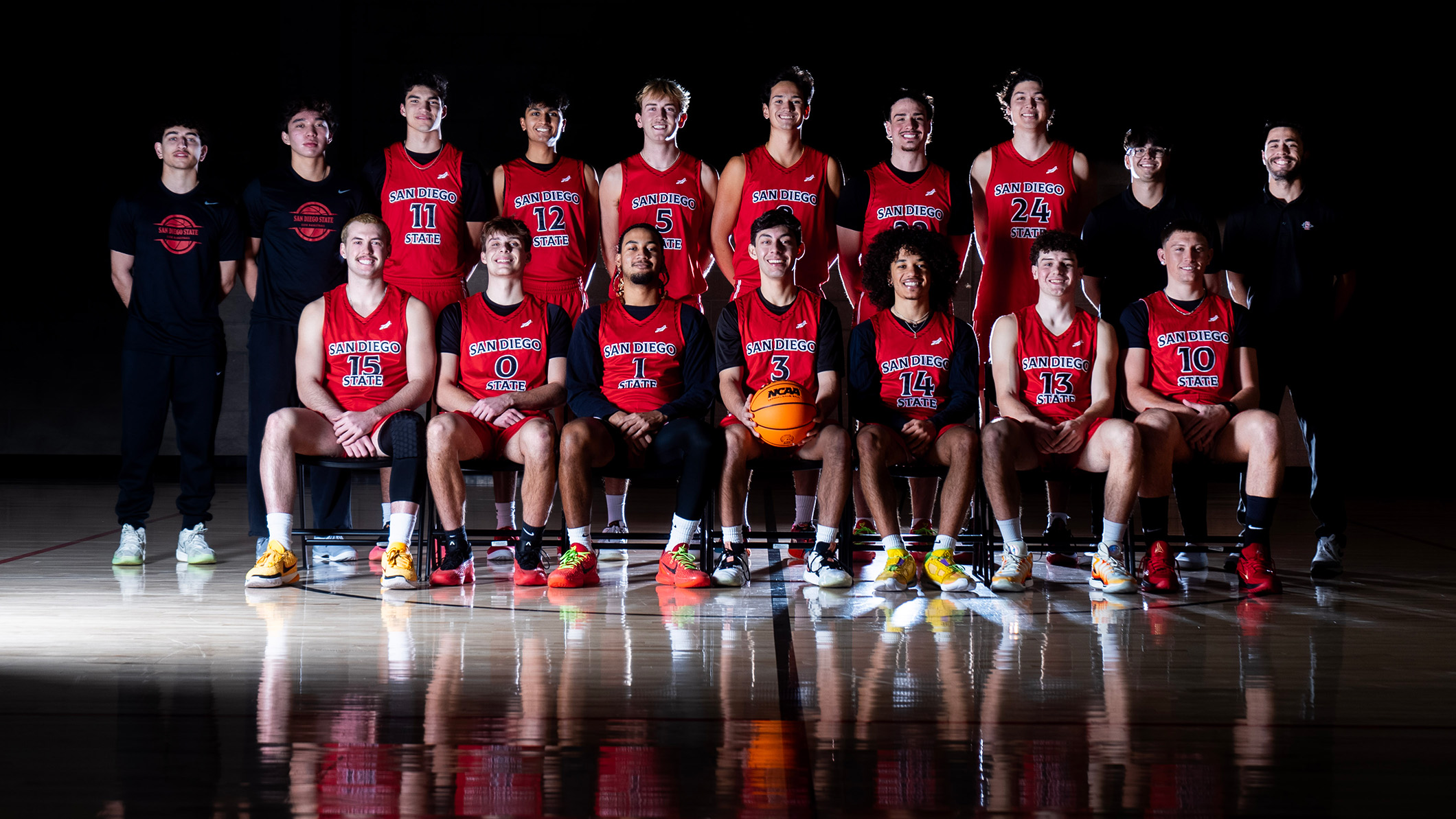Symposium an Eye-opening Event for Student Researchers
The Student Research Symposium gives students a much-desired platform to practice scientific communication.

“It also provides beneficial experience students can leverage when applying for graduate school or starting their scientific careers.”
By the end of her poster session during San Diego State University’s Student Research Symposium (SRS), psychology major Michaelle Castro had been pushed well out of her comfort zone.
A student at SDSU Imperial Valley, she had never publicly presented her research before — a project she completed with other students analyzing perceptions about HIV near the U.S.-Mexico border. Despite her nervousness, participating in the study and communicating her team’s work helped her grow as a budding scientist, she said.
“I’ve never done anything like this in the four years I’ve been in college,” she explained. “This has been eye-opening and really taught me a lot about HIV and the process of research.”
For student presenters like Castro, SRS is the culmination of countless hours of hard work in the lab. Nearly 430 students participated in the two-day symposium that took place Feb. 28-29.
More than 160 judges and moderators evaluated posters and presentations, helping determine the 59 awards presented to students — including $17,000 in cash prizes. Ten students received the symposium’s top prize, the Presidential Award, and an invitation to represent SDSU at the system-wide California State University Student Research Competition at California State University, East Bay on April 24-25.
“SRS is an incredibly valuable venue for students to present and discuss work they’ve spent months, and in some cases years, preparing,” said SDSU Vice President for Research Stephen Welter. “It also provides beneficial experience students can leverage when applying for graduate school or starting their scientific careers.”
For first-year public health doctoral student Marisa Torres-Ruiz, the symposium provided an opportunity to make critical connections with faculty and fellow public health students. She presented her work analyzing colorectal cancer screening trends in California, and several students and judges stopped by her poster presentation to discuss her results.
“You connect with other students who are doing similar research,” said Torres-Ruiz, whose poster won a SRS Research Award for Diversity, Inclusion and Social Justice. “That’s a nice aspect of it…the ability to talk to peers.”
Microbiology major Mambu Nsuangani’s undergraduate research considers the impact of tobacco, marijuana and e-cigarettes on the human oral microbiome. Presenting at SRS for the first time as an undergraduate, Nsuangani said the symposium gave him a much-desired platform to practice scientific communication.
“Scientific research can be very difficult to communicate, especially to people who aren’t in your field. Being a part of SRS has given me more insight on how I can present my findings to other people,” he said, adding that being an active member of a lab as an undergraduate student has given him “inside knowledge” about what it takes to be a practicing scientist and develop a comprehensive research study.
The follow students received the Presidential Award at the 2020 Student Research Symposium and will represent SDSU at the California State University Student Research Competition at California State University, East Bay on April 24-25:
Chynna Bowman - College of Sciences Using Transmission Electron Microscopy to investigate the effect of pulsed 450 nm blue light on methicillin-resistant Staphylococcus aureus
Jeffrey Jones - College of Sciences Examining the role of High Mobility Group Box 1 (Hmgb1) in cardiomyocyte senescence
Alexandra Strom - College of Sciences Identifying new regulation strategies of isocitrate dehydrogenase
Ana Gomez Ramirez - College of Sciences Analyzing trophic structure of island ecosystems using stable isotopes: what is the role of nutrient subsidies from seabird nesting and foraging behavior?
Katherine Reil - College of Sciences The Efficacy of VAX014 in the B16F10 Mouse Model: A Novel Oncolytic Immunotherapy for Melanoma
Ivette Lorona - College of Arts and Letters The Right to Health Care: Central American Asylum Seekers in Chiapas, Mexico
Melissa Giluso - College of Sciences Discovering Bacteriophages in the Human Gut
Maricruz Carrillo - College of Engineering Fabrication of Ceramic Bone Scaffolds by Solvent Jetting 3D Printing and Sintering Towards Load-Bearing Applications
Melanie Nicholls - College of Health and Human Services Homeless and Polysubstance Use: A Qualitative Study on Treatment Access Solutions
Darielle Blevins - College of Education Visualizing Girlhood



